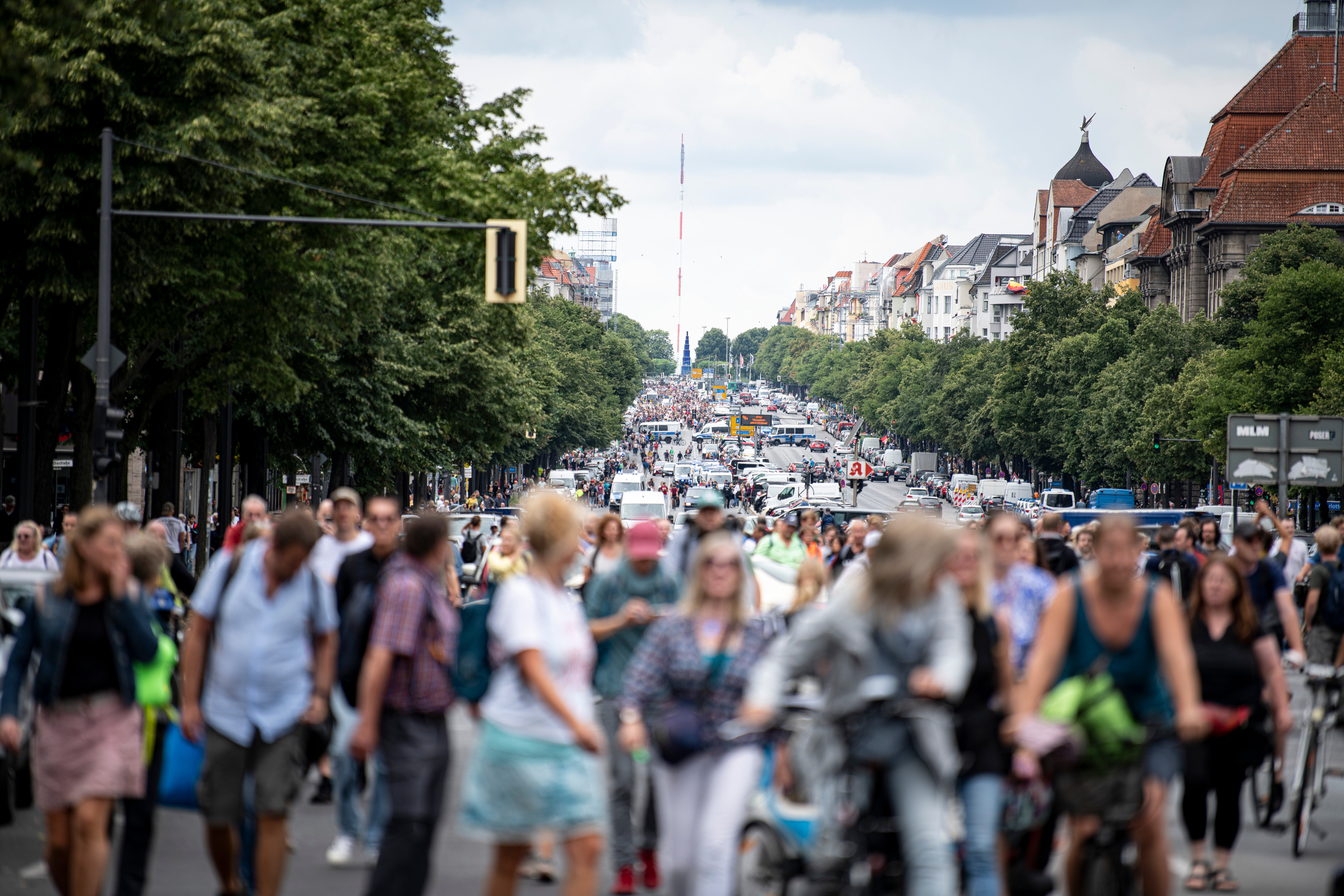Crowds defy ban to protest coronavirus measures in Berlin
Hundreds have turned out in Berlin to protest the German government’s anti-coronavirus measures despite a ban on the gatherings, leading to arrests and clashes with police

Your support helps us to tell the story
From reproductive rights to climate change to Big Tech, The Independent is on the ground when the story is developing. Whether it's investigating the financials of Elon Musk's pro-Trump PAC or producing our latest documentary, 'The A Word', which shines a light on the American women fighting for reproductive rights, we know how important it is to parse out the facts from the messaging.
At such a critical moment in US history, we need reporters on the ground. Your donation allows us to keep sending journalists to speak to both sides of the story.
The Independent is trusted by Americans across the entire political spectrum. And unlike many other quality news outlets, we choose not to lock Americans out of our reporting and analysis with paywalls. We believe quality journalism should be available to everyone, paid for by those who can afford it.
Your support makes all the difference.BERLIN — Hundreds of people turned out in Berlin on Sunday to protest the German government’s anti-coronavirus measures despite a ban on the gatherings, leading to arrests and clashes with police.
Local authorities banned several different protests registered for this weekend, including one from the Stuttgart-based Querdenker movement, which expected 22,500 attendees. But protesters defied the ban, starting to gather Sunday morning at various points around the city.
Berlin’s police department deployed more than 2,000 officers around the city. As the crowds grew in the afternoon, officers who sought to redirect protesters or disband larger groups were “harassed and attacked,” Berlin’s police tweeted.
“They tried to break through the police cordon and pull out our colleagues," it said, adding that police had to use irritants and batons.
The protests, including in Berlin’s Charlottenburg neighborhood and the Tiergarten park, led to multiple arrests, police said. As the crowds made their way toward the Brandenburg Gate police warned via loudspeaker that they would use water cannons if protesters did not disperse.
Germany eased many of its coronavirus restrictions in May, including reopening of restaurants and bars. Still, many activities, such as dining indoors at restaurants or staying in a hotel, require proof that an individual is either fully vaccinated, has recovered from the virus or can show proof of a recent negative coronavirus test.
The Querdenker movement, which has become the largest and most visible anti-lockdown movement in Germany, has at times drawn thousands of supporters to its demonstrations in Berlin and elsewhere across the country. It has brought together a disparate mix of demonstrators, including people opposing vaccinations, coronavirus deniers, conspiracy theorists and right-wing extremists.
Earlier this year, Germany’s domestic intelligence service warned the movement was becoming increasingly radical, putting some of its adherents under surveillance.
The protests follow other widescale demonstrations against coronavirus measures around Europe Thousands have turned out to protest vaccination requirements in France over the past three weekends, at times clashing with the police, and about 80,000 people protested in cities across Italy last weekend.